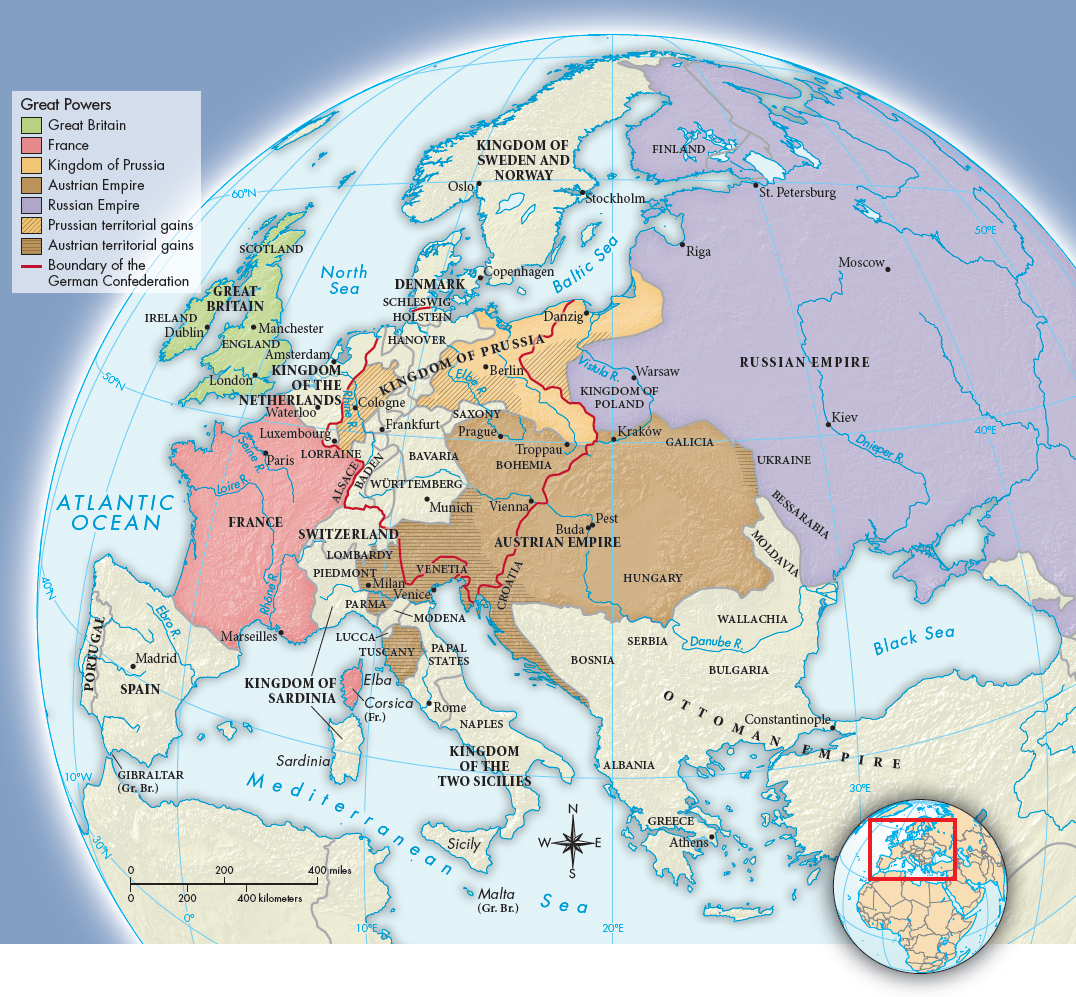Understanding World Societies:
Printed Page 713
Conservatism After 1815
The peace settlement’s domestic side was much less moderate. In 1815, under Metternich’s leadership, Austria, Prussia, and Russia formed the Holy Alliance, dedicated to crushing the ideas and politics of the revolutionary era. Metternich’s policies dominated the entire German Confederation of thirty-

ANALYZING THE MAP: Trace the political boundaries of each Great Power, and compare their geographical strengths and weaknesses. What territories did Prussia and Austria gain as a result of the war with Napoleon?CONNECTIONS: How did Prussia’s and Austria’s territorial gains contribute to the balance of power established at the Congress of Vienna? What other factors enabled the Great Powers to achieve such a long-
Adhering to a conservative political philosophy, Metternich believed that strong governments were needed to protect society from its worst instincts. Like many European conservatives of his time, Metternich believed that liberalism (see “Liberalism and the Middle Class”), as embodied in revolutionary America and France, had been responsible for a generation of war with untold bloodshed and suffering.
Another belief that Metternich opposed, which was often allied with liberalism, was nationalism, the idea that each national group had a right to establish its own independent government. The Habsburg’s Austrian Empire was a dynastic state dominated by Germans but containing many other national groups. This multinational state was both strong and weak. It was strong because of its large population and vast territories, but weak because of its many and potentially dissatisfied nationalities. In these circumstances, Metternich opposed both liberalism and nationalism, for Austria could not accommodate those ideologies and remain a powerful empire.